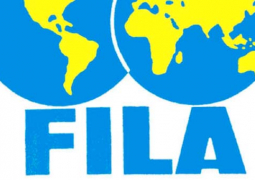Mr Gomez is also a fervent advocate of the use of our national languages, and he also has faith in the potential of our national languages to upgrade our nations socially, politically and economically. This faith led him to study Wollof grammar at University in Senegal, in the 1980s. He could have studied history or geography; instead he majored in Wollof grammar and has ever since firmly believed that when promoted our local languages can be as effective as the European foreign languages. Let us Read and Write Wollof and Leebone Lupane are two books which should be read and seen in this context of a passionate advocate of our national tongues calling for due respect and consideration to be accorded to them. I wish to encourage all Gambians to therefore, promote and protect our national languages through use, and to learn how to write and read in them so that they will not die. Mr Gomez has shown us the way, and we must be grateful to him for this pioneering work.
Let us Read and Write Wollof has come at a time when there is an experiment to teach children in national languages in the first four years of the education cycle. Connie has done much careful and painstaking research on the orthography of Wollof as spoken in the Gambia, and this is the version he uses in the book. In this book, he also carefully takes us through some of the phonological and semantic variations between Wollof as spoken in the Gambia and as spoken elsewhere like Senegal or Mauretania. This is important as it shows that the beauty of the language lies in its diversity in usage and users.
The other book Leebone Lupeen is particularly commendable because it is written entirely in Wollof. I want to think that this is the first full length book in Wollof to be published in this county. This is a worthy development, and a milestone in the annals of Gambian literature. The book is ananthology of 15 folktales and fables, including the more familiar Kumba am ndey and kumba amul ndey; all the fables have morals behind them which the perceptive reader will discern.In conclusion, Connie’s brilliant efforts raise two challenges to us as Gambians and Africans: how to preserve our national languages and how to use our folklore to promote discipline and respect for authority in our societies. By buying and reading his work, we shall be right on the way to meeting this challenge.
Available at Timbooktoo, tel 4494345.
Read Other Articles In Article (Archive)
Taiwan donates US$300,000 to Gambia
Apr 20, 2011, 3:19 PM


